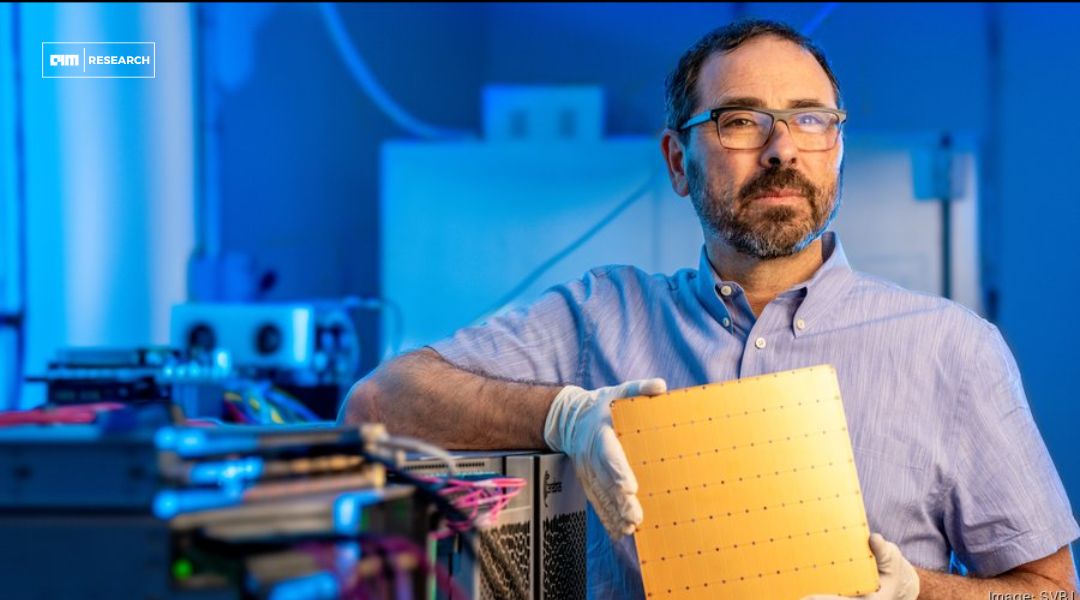

When Dropbox first launched in 2007, it promised a simple way to sync and share files across devices. For a while, it worked. User numbers climbed, venture capital flowed, and Dropbox became one of Silicon Valley’s early success stories.
But after the initial wave of growth, CEO Drew Houston found himself fighting on several fronts, against Apple’s iCloud, Google Drive, Microsoft OneDrive, and a shifting perception that Dropbox was simply another storage company. Now, nearly two decades in, Houston is trying to reshape the company’s role in a workplace that looks nothing like it did when Dropbox started.
“We’re shifting from syncing files to being the intelligence layer for your working life,” Houston said in an interview at the McLaren Technology Centre in Woking, UK. “For a lot of our customers, Dropbox just works. They already trust us for their most important information — now we’re helping with everything else, bringing it together in one place and connecting the dots.”
That effort centers on Dropbox Dash, a product Houston describes as a “universal search and knowledge management platform” built for the way people work today — across dozens of apps, platforms, and scattered data sources.
Since introducing Dash in 2023, Dropbox has been refining the product with input from customers. One of the most important, according to Houston, has been McLaren Racing.
For much of its early life, Dropbox succeeded by doing one thing very well: making files accessible anywhere. But as the market shifted, and as cloud storage became a commodity bundled into operating systems and workplace suites, Houston realized the company had to move beyond its roots.
“Everybody’s busy firing, not aiming,” Houston said, describing the feeling inside most workplaces today. The challenge isn’t just lack of effort but lack of focus, made worse by the fragmented ecosystem of tools and apps that define modern work.
Dash is Dropbox’s answer to that. It acts as a universal search tool across services like Google Drive, Slack, Zoom, Canva, Figma, Jira, and many others. Users can type in a simple query like “customer event release forms” or “New York spring campaign video” and Dash will surface results — even if the original files were spread across different formats, apps, or file types.
Importantly, the latest version of Dash goes beyond searching documents: it now indexes audio, video, and images. Dropbox also added people search, enabling users to find teammates or subject matter experts based on their project history.
Houston is clear-eyed about how he frames Dash’s use of AI. “There’s a lot of hype about AI,” he said. “We’re focused on where AI actually translates into productivity, incremental revenue, and making your business stronger.”
Dropbox has been careful to build Dash with security and compliance in mind, introducing features that allow IT admins to manage permissions across apps and exclude sensitive content from search results. Customers can even choose to self-host AI models for additional privacy.
Houston said McLaren immediately stood out when Dropbox began exploring opportunities in Formula 1. “They were just very forward-leaning in terms of their adoption of technology,” he recalled. “I also really admired the culture of the team, and their focus on excellence.”
The collaboration has been intensive. McLaren was not just a logo partnership. The team pushed Dropbox to deliver a product that could handle the extreme demands of a sport where milliseconds matter.
“McLaren really goes all-out with their partners in what we need as a business,” said Dan Keyworth, Director of Business Technology at McLaren Racing.
Keyworth outlined how McLaren’s globally distributed teams, with around 150 people trackside and hundreds more supporting from headquarters need real-time access to the right information, no matter where it’s stored. “The sport is trying to get more out of what you’ve already got,” he said. “It’s not about making the ship heavier; it’s about being more efficient and extracting more performance from the team.”
When asked about Dash specifically, Keyworth was direct: “I don’t think there’s another product that’s doing it, or doing it as well as what you get with Dash.”
Houston sees the collaboration as critical. “Putting the product through its paces early means that if it can meet McLaren’s needs for excellence, speed, reliability, and security, then it’s going to work for a lot of other customers too.”
McLaren’s involvement even shaped new features. For example, they pressed Dropbox to enhance Dash’s ability to control which workers could access specific data, and to maintain strong brand consistency across internal communications — something Houston said Dash’s AI assistant now helps automate by learning users’ writing styles.
When the pandemic forced millions to work remotely, it also pushed work deeper into screens and into dozens of fragmented tools. Houston said it became clear that the traditional model of productivity, built around office spaces and local drives, was overdue for a rethink.
“If Einstein were alive today, what would his day be like?” Houston said. “He’d wake up, delete a bunch of LinkedIn notifications, get down to work, and then someone would Slack him and interrupt him. Would we still understand relativity if Einstein had to work like that?”
The answer, he suggests, is probably not.
Dropbox’s new strategy is aimed at giving workers back what Houston sees as the ultimate non-renewable resource: their attention. By building an intelligence layer that connects across apps and information silos, he hopes to turn screens back into a place of deep, meaningful work, not just endless notifications.
Houston acknowledges that competition is fierce. Google, Microsoft, and a wave of startups are integrating AI into productivity tools. But he believes Dropbox’s cross-platform, “last mile” approach sets it apart.
“We see Dash as going the last mile to really bring AI to work in a common sense and cross-platform way, and solve these problems we all have dozens of times a day,” he said.
Houston is clear that the transformation is still underway. “Challenge isn’t optional,” Houston said. “The suffering is optional.” And if it can help a team like McLaren find speed on and off the track, Houston believes there’s a good chance it can do the same for the rest of us.
📣 Want to advertise in AIM Research? Book here >
Cypher 2024
21-22 Nov 2024, Santa Clara Convention Center, CA
A Vendor Briefing is a research tool for our industry analysts, and an opportunity for a vendor to present its products, services and business strategies to analysts who cover the vendor specifically or a related technology or market.
AIM Research encourages technology vendors and agencies to brief our team for PeMa Quadrants, when introducing a new product, changing a business model, or forming a partnership, merger, or acquisition.


